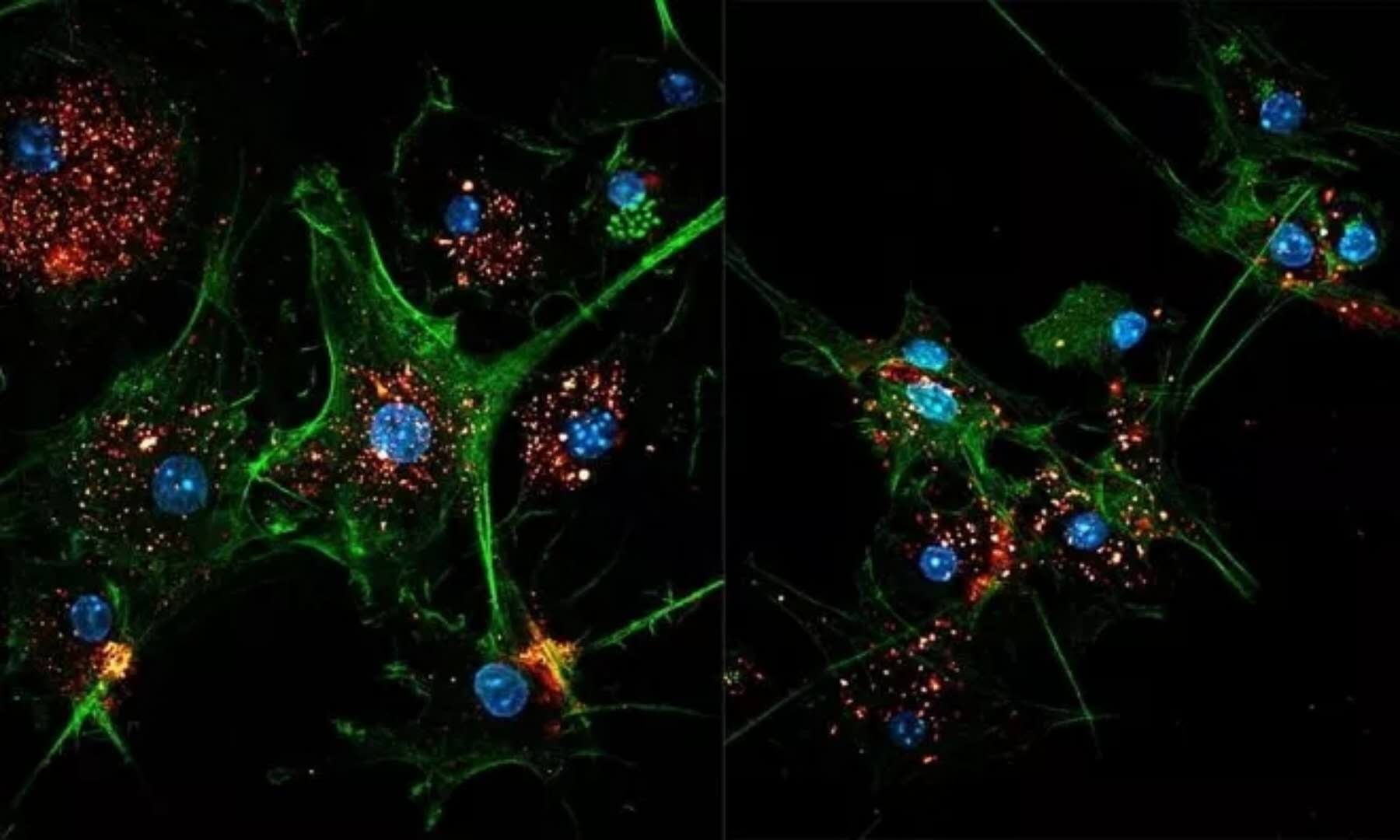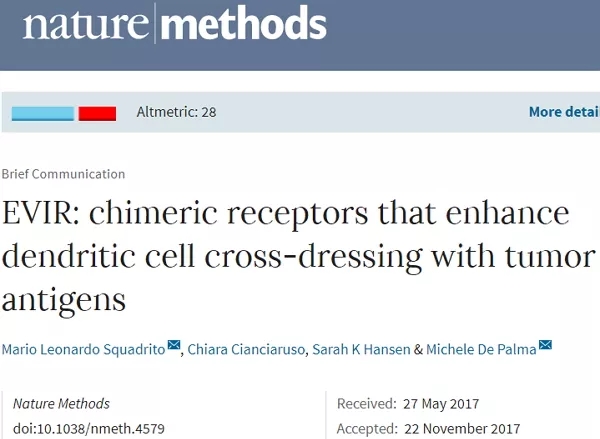Scientists have developed an artificial receptor, or will strengthen the anti-tumor vaccine January 25, 2018 Source: Biological Exploration Dendritic cells (DCs) are powerful antigen-presenting cells and are key cells in anti-tumor immunotherapy. Now, scientists have developed an artificial receptor that can improve the way DCs present antigens and improve the efficiency of immune cells in identifying and attacking tumor cells. The study was published online January 22 in the journal Nature methods. Two images of EVIR-engineered dendritic cells (green) capturing tumor antigens in exosomes (gold/red). Cell nuclei are colored blue. Credit: M. De Palma/EPFL Immunotherapy is a major breakthrough in the history of cancer treatment, but it is currently not "wide and effective". On the contrary, only a few solid tumor patients respond to this therapy. Scientists are trying to improve its accuracy and strength. Many laboratories have their eyes locked on dendritic cells (DCs), a type of core cell that induces immune responses in the body, which are responsible for identifying specific antigens, treating them and presenting them as killer T cells, and promoting them to attack invaders. . Scientists hope to develop a dendritic cell vaccine against tumors. Image source: Journal (doi:10.1038/nmeth.4579) â–‹ 1 , DC vaccine How to develop a vaccine? Scientists remove dendritic cells from the patient and "force feed" specific tumor antigens, which are then injected into the patient. The idea is to promote the ability of dendritic cells to mobilize killer T cells to destroy tumor cells. At present, dendritic cell vaccines have achieved some clinical success, but still face many unknowns and problems. For example, tumor antigens used to "feed" dendritic cells are typically not derived from the patient's tumor, but are taken from cells cultured in the laboratory (only similar to portions of the patient's body). This limits the power of the vaccine because the antigen it recognizes and presents may be different from the antigen carried by the patient's tumor, eventually leading to killer T cells not correctly recognizing and attacking the tumor. â–‹ 2 , the solution Professor Michele De Palma from the Federal Institute of Technology (EPFL) in Lausanne, Switzerland, hopes to solve this problem. They developed an artificial receptor, EVIR (extracellular vesicle-internalizing receptors), which allows dendritic cells in vaccines to selectively capture antigens derived from patient tumors. The beauty of the EVIR receptor is the ability to recognize proteins on exosomes, a type of small vesicle secreted by tumor cells. Exosomes contain a variety of tumor antigens, and have specific associations with tumor growth and metastasis. The researchers used EVIR receptors to modify dendritic cells, allowing the latter to capture tumor-derived exosomes and stimulate tumor antigens that were originally on the surface of exosomes to be directly transferred to the outer membrane of dendritic cells. “We call this phenomenon “cross-dressingâ€, which is different from the traditional antigen presentation path, bypassing complex molecular interactions,†explains Michele De Palma. Mario Leonardo Squadrito, the first author of the article, said: "EVIR technology takes advantage of a natural phenomenon that tumor cells release exosomes carrying antigens." This research opens up a new way to develop more advanced and effective anticancer therapies. Although this new technology is expected to improve the efficacy and specificity of dendritic cell vaccines, more research is needed than true clinical applications. References: 1)Boosting cancer therapy with cross-dressed immune cells Tattoo Nitrile Gloves,Disposable Nitrile Gloves,Powder Free Cheap Glove,Blue Disposable Nitrile Gloves Puyang Linshi Medical Supplies Co., Ltd. , https://www.linshimedicals.com
